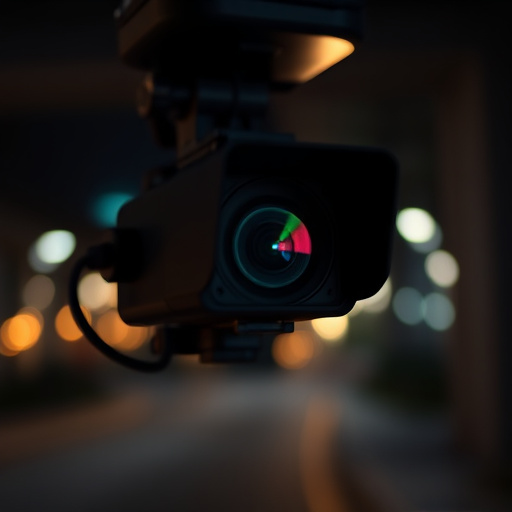Body-Worn Surveillance Camera Systems (BWSCS) offer landlords remote, high-quality monitoring of rental properties but raise privacy concerns among tenants. These systems provide security benefits but must be implemented transparently to balance property safety and tenant rights. Landlords should consider visible security cameras or professional services, communicate clearly in lease agreements, and respect tenant privacy while ensuring property maintenance. With technology advancing, BWSCS usage requires careful consideration of legal implications and tenant expectations for a fair rental experience.
In today’s digital era, rental property owners are increasingly turning to body-worn surveillance camera systems for security. However, this practice raises important legal considerations and privacy concerns. This article delves into the world of secret surveillance in rentals, exploring common hidden spots, tenant rights, and the ethical implications of these advanced technologies. Understanding the balance between security and privacy is crucial, especially as Body-Worn Surveillance Camera Systems become more prevalent in rental properties.
- Understanding Body-Worn Surveillance Camera Systems
- Legal Considerations for Rental Property Owners
- Common Secret Surveillance Spots in Rentals
- Privacy Concerns and Tenant Rights
Understanding Body-Worn Surveillance Camera Systems
Body-Worn Surveillance Camera Systems have become increasingly sophisticated tools for property management and security. These compact, wearable devices offer a discreet yet powerful way to monitor activities within rental properties. Unlike fixed cameras, they provide mobility, allowing operators to remotely capture high-quality footage from various angles. This technology is especially valuable in situations where direct observation may be limited or for capturing unscripted events that could impact property safety and tenant behavior.
By integrating Body Worn Surveillance Camera Systems into their strategies, landlords and property managers can enhance security, deter potential issues, and gather essential evidence. The systems typically include a camera attached to an officer’s uniform or equipment, linked via wireless transmission to a central monitoring station. This setup ensures real-time video streaming and recording, enabling swift response to any incidents while providing valuable insights into property dynamics.
Legal Considerations for Rental Property Owners
In the realm of rental property management, owners must tread carefully when considering surveillance measures to ensure they adhere to legal boundaries. While maintaining a safe and secure environment is paramount, deploying secret surveillance spots, particularly using body-worn camera systems, raises significant privacy concerns. It’s crucial for owners to understand that these hidden surveillance devices can infringe on tenants’ reasonable expectation of privacy, as established by case law.
Rental property owners should focus on striking a delicate balance between security and respect for tenant privacy. Instead of relying on secret surveillance, they could explore alternative strategies like visible security cameras in common areas or hiring professional security services that operate transparently. Additionally, clear communication about monitoring practices through lease agreements can help set expectations while ensuring compliance with relevant data protection regulations, such as those regarding the use of Body Worn Surveillance Camera Systems.
Common Secret Surveillance Spots in Rentals
In today’s digital era, privacy has become a nuanced concept, especially within rental properties. While landlords have legitimate security concerns, the use of secret surveillance spots can be a sticky issue for tenants. Unbeknownst to them, common areas and even personal living spaces could be under constant watch via hidden cameras. These body-worn surveillance camera systems, often disguised as everyday items, can capture detailed footage and audio, raising serious questions about tenant rights and trust.
From smoke detectors to fire alarms and even seemingly innocuous decor pieces, these devices can be strategically placed to monitor a wide range of activities. Landlords might argue that such measures are for the safety and maintenance of the property, but tenants often feel they have no choice but to accept these invasive practices. Understanding the potential for abuse and the legal implications is crucial for both parties to ensure a fair and transparent rental experience.
Privacy Concerns and Tenant Rights
Privacy concerns have grown significantly in recent years, especially with advancements in technology and the increasing prevalence of surveillance systems. In the context of rental properties, this raises important questions about tenant rights and the balance between security and personal privacy. While landlords have a legitimate interest in ensuring the safety and maintenance of their properties, they must also respect the privacy of their tenants.
Body-worn surveillance camera systems, for instance, can be a controversial tool in rental settings. Tenants may feel that such systems infringe upon their expectation of privacy within their living spaces. It’s crucial for landlords to establish clear policies regarding the use of these cameras, ensuring transparency and obtaining informed consent from tenants. Understanding tenant rights and implementing responsible surveillance practices are essential steps towards fostering a harmonious relationship between property owners and renters.
While Body-Worn Surveillance Camera Systems can offer benefits for rental property security, it’s crucial for owners to navigate legal boundaries responsibly. Understanding tenant rights and prioritizing open communication fosters a harmonious relationship. By choosing ethical deployment strategies and avoiding secretive placement of cameras, landlords can maintain a safe environment without infringing on their tenants’ privacy.
